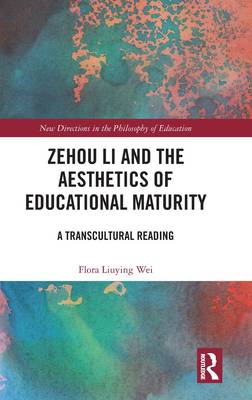
- Retrait gratuit dans votre magasin Club
- 7.000.000 titres dans notre catalogue
- Payer en toute sécurité
- Toujours un magasin près de chez vous
- Retrait gratuit dans votre magasin Club
- 7.000.0000 titres dans notre catalogue
- Payer en toute sécurité
- Toujours un magasin près de chez vous
Description
This book articulates a unique conception of aesthetic educational philosophy and its relation to the Chinese world, drawing on the works of the prominent contemporary Chinese philosopher Zehou Li.
The book outlines an aesthetics approach to educational maturity that recognises both the contributions of Western Enlightenment ideals and Chinese traditions, paving the way for an inclusive and post-comparative philosophy. It offers a nuanced discussion of Zehou Li's thought and how his work can be framed at the border between traditional and modern China, between China and the West. The book combines a discussion of aesthetics with educational theory and considers their combined implications for educational practice (in particular in the first-person perspectives of students, parents and teachers), in both local and global contexts.
Providing a way of doing philosophy of education that carefully considers interactions and overlaps between Western and Chinese civilisation, the book will be of great interest to researchers, academics and postgraduate students in the fields of educational philosophy, educational theory, and Chinese and cross-cultural philosophy.
Spécifications
Parties prenantes
- Auteur(s) :
- Editeur:
Contenu
- Nombre de pages :
- 182
- Langue:
- Anglais
- Collection :
Caractéristiques
- EAN:
- 9781032294049
- Date de parution :
- 19-09-22
- Format:
- Livre relié
- Format numérique:
- Genaaid
- Dimensions :
- 156 mm x 234 mm
- Poids :
- 458 g

Les avis
Nous publions uniquement les avis qui respectent les conditions requises. Consultez nos conditions pour les avis.






